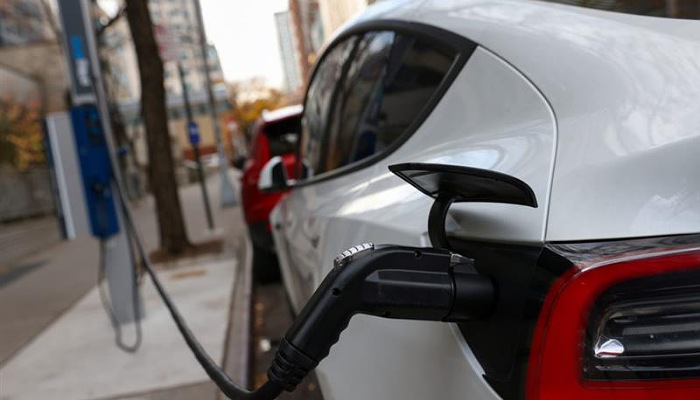
Experts have listed five approaches as the most viable solutions for mitigating carbon emissions while meeting Africa’s development.
Some of these approaches, according to them, included development of natural gas and commercialisation; increase use of renewables; protection and rehabilitation of Africa’s natural carbon sinks; innovation in low-cost /low emissions clean energy solutions and carbon capture storage/carbon capture reutilization, among others.
Speaking at the maiden edition of Asharami Square with the theme: “Carbon Footprint and African Narrative”, a Sahara Group initiative aimed at promoting sustainability through effective media advocacy, experts at the forum pointed out that despite the relatively lower carbon (CO2) emissions, Africa is still heavily impacted by climate change.
In Africa, they said energy sector is considerably the industry with the highest CO2 emissions
Speaking on carbon footprint, the experts pointed out that Africa is vulnerable to climate change, stating that reducing carbon emissions would be essential to mitigate its impacts.
Besides, they argued that as Africa’s energy demand grows, it’s essential to transit to cleaner energy sources to ensure alignment with sustainable development goals.
“Reducing carbon footprints by investing in renewable energy can provide sustainable and reliable energy, decrease reliance on fossil fuels, and foster economic development,” they said.
They also adduced energy security, environmental protection, energy access and healthy living as reasons to discuss carbon footprint on Africa.
An official of Egbin Power listed asset care programmes, obsolescence management programmes, asset upgrades and overhauls, energy efficiency improvement programmes, sustainability and environmental impact management programmes and fugitive emissions minimisationprogrammes as some of the initiatives by Egbin Power to reduce carbon footprint.
On sustainability, he said that Egbin power has embarked reforestation programme by planting 1,000 trees in the past three years to preserve biodiversity.
Others, he said included: “Adoption and enforcement of ANSI Lighting Design Standards for Egbin built environment;
gradual switch from Internal Combustion Engines (ICEs) to Compressed Natural Gas (CNG) and Electric Vehicles (EVs) for the company’s operational vehicles; protecting the water through close monitoring of its effluent to ensure it meets environmental standards and doesn’t harm aquatic ecosystems;
renewable energy integration with the wind turbines and electronic storage and transmission of Egbin process.”
Director, Governance and Sustainability, Sahara Group, Ejiro Gray, who spoke on: ” Much Ado About Africa and Carbon Emissions, noted that most carbon emissions were fuelled by human activities, adding that Nigeria has low emission rise compared to other regions.
She presented natural gas a viable opportunity to serve as a transition fuel as Africa continues to gradually invest in renewable energy.
Justifying natural gas as viable alternative, she said: “It is a relatively clean-burning fossil fuel, producing fewer COs emissions compared to coal or petroleum. Moreover, naturally abundant, secure, and flexible. In 2021, Africa’s natural gas reserves totaled over 620 trillion cubic feet. “
“By developing and monetizing these reserves through processing and eventual usage can leverage its natural gas resources to support sustainable energy development LNG, LPG and other gas products,” Gray said
According to Gray, renewable energy also offered a clean and sustainable method of producing energy.
She of the opinion that by investing in Carbon Capture Storage (CCS) and Carbon Capture and Reutilization (CCR), Africa could reduce its carbon footprint and promote industrial innovation.
Another expert, who spoke on: ”Power Distribution with Less Carbon Emissions”, ugochukwuonyechaya, also noted that the world is moving from fossil fuel such as coal, oil, gas to renewable/clean energy like solar, wind.
To effectively reduce carbon emissions from electricity generation in Nigeria, she said that a detailed and comprehensive strategy focusing on investment in renewable energy, modernizing power grids, and enhancing policy and regulatory frameworks is essential.
Speaking on carbon entrepreneurship, Lecturer, University of Lagos, Professor Sunday Adebisi, said it’s an emerging and rapidly growing field focused on developing innovative solutions to address climate change by reducing carbon emissions.
According to him, it addressed the urgent challenges of climate change, resource depletion, pollution, and inequality, while also tapping into the growing demand for green products and services.
He described carbon entrepreneurs as individuals who create products, services or businesses that reduce greenhouse gas emission, remove carbon dioxide from the atmosphere or otherwise address climate change.
According to him, carbon entrepreneurs focussed on building alternative energy sources; developing technologies for reducing emissions; constructing energy efficient buildings; and designing reforestation projects.







